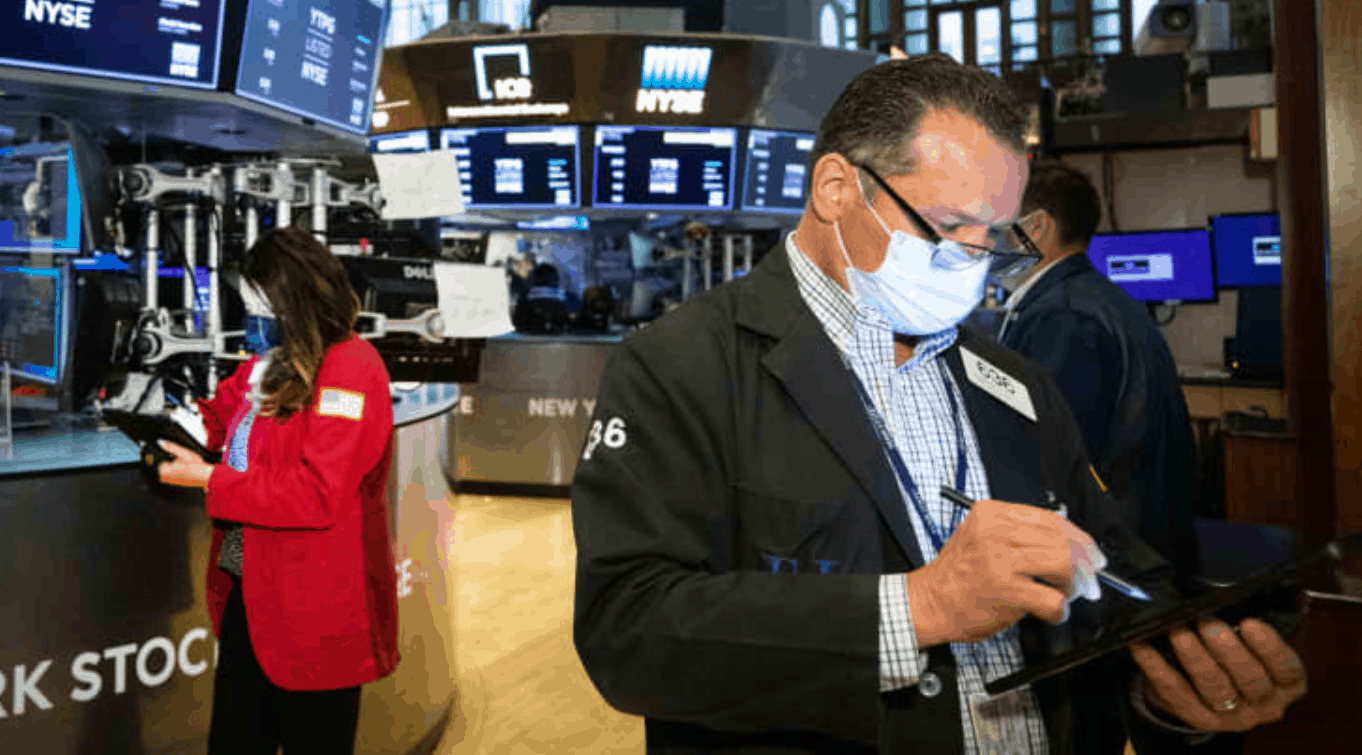After April’s disappointing jobs report, market focus will shift squarely to inflation in the week ahead.
The tug-of-war over tech stocks will also continue to be a dominant force in the stock market, after Friday’s bounce more than halved the week’s losses in the S&P technology sector.
The April employment report was extremely disappointing with just 266,000 jobs created, well below the 1 million expected. The Friday report cast doubt on the expectations of some investors that the Fed will move toward paring back its so-called quantitative easing bond purchases later this year.
The thinking is if the inflation data appears hot when the consumer price index is reported Wednesday, it could ignite the debate about whether the Fed will have to tighten policy sooner than it would like. For now, the market is viewing the April jobs data as a distorted one-off report.
“It’s all about the inflation numbers. It’s all about the transitory nature and to what extent we’ll see it,” said Peter Boockvar, chief investment officer at Bleakley Advisory Group “It’s more relevant to the CPI month-over-month changes. If the month-over-month gains are starting to pick up steam, and we’re seeing 0.3% to 0.4%, that’s not transitory and that’s a problem for the Fed.”
Economists expect April CPI to rise 0.2% over March, after a gain of 0.6% the month earlier. But on a year-over-year basis, CPI is expected to look sizzling, jumping 3.6%, according to Dow Jones. That compares to 2.6% the month earlier. Excluding food and fuel, CPI is expected to rise by 0.3% on a month-over-month basis.
The central bank has maintained that the pop in inflation is expected to be transitory.
Multiple Fed speakers are on the calendar, including Vice Chairman Richard Clarida, who speaks a half-hour after the CPI print Wednesday. Other officials speaking include Federal Reserve Board Governor Lael Brainard, New York President John Williams and Dallas Fed President Rob Kaplan.
The producer price index is reported Thursday, and that should confirm a trend of higher prices that is showing up in corporate earnings releases. Another important data point, retail sales is released Friday.
Boockvar said the retail sales report is not as important since it has been artificially boosted by one-time stimulus checks.
“It’s like the steroid era of baseball,” he said. “Who knows how many home runs it would have hit without stimulus.”
Tech battleground
The S&P 500 and Dow finished the past week with gains. The S&P rose 1.2% to 4,232, and 2.7% to 34,777. But the technology-laden Nasdaq fell about 1.5% to 13,752, even with Friday’s 0.9% gain.
In the commodities market, fears of inflation continued to build.
Copper futures hit a record high, as did lumber futures, rising 13% in the past week. Corn futures rose 8.6% in the past week, finishing at the highest level since 2013.
West Texas Intermediate crude futures gained 2% to $64.90 per barrel.
The 10-year note yield, which moves opposite price, was at 1.55%, down from 1.63% a week ago.
Commodities fueled gains in the stock market this week, with the S&P energy sector by far the best performer, up 8.9%. Materials rose 5.9%, followed by financials, which were up 4.2%. Industrials gained 3.4%. But the S&P technology sector slumped 0.5%, for the week even with a 0.8% gain Friday.
“I think one thing that people are overlooking is that the technology selling we’ve seen in the last few days…is not just the reaction to the adverse earnings price reactions that we saw from certain tech names,” said Julian Emanuel, chief equity and derivatives strategist at BTIG.
“But it’s also this idea in that in a world where we assume capital gains taxes could go up, that’s where the capital gains lie,” he added. “So they are likely to come under incrementally more pressure on that basis.”
President Joe Biden has proposed raising capital gains taxes to 39.6% for taxpayers making more than $1 million. That’s up from the current top rate of 20%.
Emanuel said the upcoming federal income tax return filing date of May 17 could also be adding pressure to technology, since investors may be selling winners to pay their taxes.
“With the tax bill coming due on May 17 for the 2020 calendar year, people are just going to use it as an excuse within the context of higher capital gains taxes to sell those stocks to pay for their tax bill,” Emanuel said. “I think people are overlooking this as part of the reason.”
Boockvar said tech names could also face further headwinds from higher interest rates, particularly if inflation data is hotter than expected.
“I think the last couple of weeks tells you froth is coming out of the most expensive part of tech and earnings for the big cap names are as good as it gets in terms of growth rates. The market is telling you that,” he said. “If you get a further move in rates, that’s a headwind.”
Earnings season continues in the week ahead though most of the rush is over for the quarter. Disney, Marriott, Wynn Resorts, Airbnb are among the companies reporting that should provide insight on the economic reopening.

